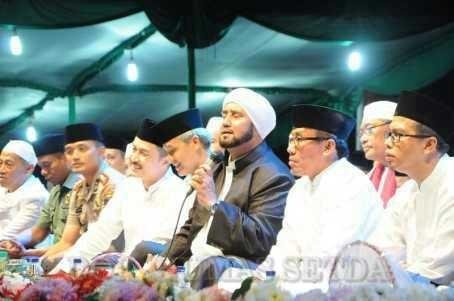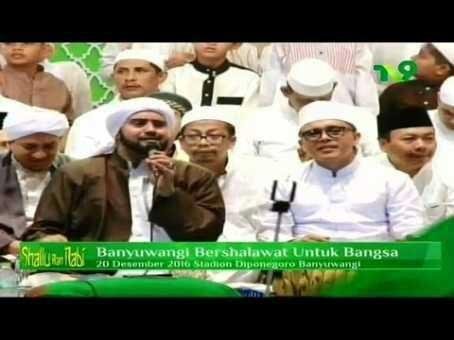These are the Best Times to Pray to Prophet Muhammad SAW
For the execution time, shalawat can be done anytime. But there are some best times to pray to the Prophet Muhammad. When are the best times in question? Here are 7 seven good times of good health:
- When Entering Mosque
The first best time to pray to the Prophet (s) was when he entered the mosque. This suggestion is in accordance with the hadith of Fatima Radhiallahu'anha:
"Usually, when the Messenger of Allah (may peace be upon him) entered into his mosque, he said: Rabbighfirli Dzunubi Waftahli Abwaaba Rahmatik (O Allah, forgive my sins, and open for me the doors of Your Mercy)," (Narrated At Tirmidhi, 314. Dishahihkan Al Albani in Shahih Sunan At Tirmidhi).
- When Out Mosque
Not only when entering the mosque, it turns out when stepping foot to get out of the mosque was we are encouraged to pray over the Prophet SAW. As the continuation of the hadith from Fatima Radhiallahu'anha:
"And when he came out of the mosque, he prayed: Rabbighfirli Dzunubi, Waftahlii Abwaaba Fadhlik (Oh God, forgive my sins, and open for me the doors of your virtue)," (Narrated At Tirmidhi, 314. Dishahihkan Al Albani in Shahih Sunan At Tirmidhi).
- When Tasyahud is in Prayer
The next best time to perform is when tasyahud is in prayer. Every Muslim must always carry out this command when they perform the obligatory prayers or the sunnah. Rasulullah sallallaahu'alaihi wasallam said:
"The Messenger of Allaah (peace and blessings of Allaah be upon him) heard a man praying in his prayer without glorifying God and without prayer. He also said: 'This man is too hasty'. The Messenger of Allah then summoned the man and then advised him: 'If any one of you is praying, start praising God, then praise God, then take good care, then afterwards pray what he wants', "(Abu Dawud, 1481) Dishahihkan Al Albani in Shahih Sunan Abi Daud).
- Inside the Eucharistic Prayer
When performing the sacred prayer, we are also encouraged to pray to the Prophet (s). The postulate which states disyariatannya is what is narrated by Imam Abdur Rozzaq in mushonnafnya (no.6428) with sanad shahih:
"Azzuhri said: I heard Abu Umamah bin Suhail bin Hanif say Ibn Musayyab: Sunnah in the corpse prayer is takbir then read the Qur'anic verse, then special prayer for the corpse, and do not read (Qur'anic verses) but on the first takbir, then the greeting from the right. Ibn Jurayj said: Ibn Shihab said: The recitation (verse of the Qur'an) on the Salat on the first takbir. "
- When Named the Messenger of Allah (peace and blessings of Allaah be upon him)
Perhaps many of us who do not know that we should pray when the name of the Prophet SAW. Even if we do not practice it, the Apostle treats us as a stingy person. This is in accordance with a hadith, the Prophet sallallaahu'alaihi wasallam said:
"The stingy person is a person who, when my name is mentioned, is reluctant to be in prison," (HR At Tirmidhi no.3546, he said: "Hasan Shahih Gharib").
- When Completed Hearing of Adhan
The next best time is when finished listening to the call to prayer. Besides being encouraged to say what is said by the muezzin, we are also commanded to pray to the Messenger of Allah. Rasulullah sallallaahu'alaihi wasallam said:
"If you listen to the muadzin calling the call to prayer, say what he says. Then pay attention to me. Because every one has a piety to me, Allah will repent to him 10 times, "(Muslim, No. 384).
- In the series of morning and afternoon dhikr
Dhikr become one of the practices that we should always carry out in everyday life, be it in the morning or afternoon.
It would be better when the remembrance was accompanied by a prayer to Rasulullah SAW. For there is an extraordinary reward to be gained by those who carry it out. As contained in the words of Rasulullah SAW:
"Whoever prays to me in the morning and in the evening each time 10 times, he will get my syafa'at later on the Day of Resurrection," (Dihasankan by Al Mundziri in Targhib Wat Tarhib, 1/314, also by Al Haitsami in Majma 'Az Zawaid , 10/123). 
